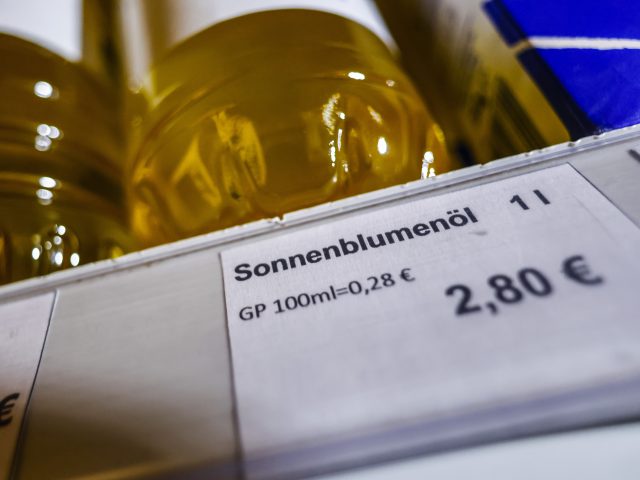Germany’s federal authorities are considering a bailout for low-income citizens as the country’s cost of living crisis looks “likely” to worsen.
Hubertus Heil, Germany’s Labour Minister and a member of the left-wing Social Democratic Party, has announced that it is his intention to bail out low to medium income earners in Germany in the hopes of offsetting the ongoing cost of living crisis.
Thanks to a combination of the ongoing war in Ukraine and poor policy decisions in the past, the European Union member-state is currently suffering deeply from a steep rise in food and energy prices — a crisis which some experts now believe is set to get even worse.
According to a report by Der Spiegel, Minister Heil wants to see those earning a gross income of less than €4,000 (~$4,293/£3,999) — or a combined income of less than €8,000 (~$8,585/£6,799,) if they are a married couple — receive payments averaging €200 (~$214)/£169 per person per year.
The proposal has received mixed responses from the Social Democrats’ coalition partners in Germany’s three-party government, with some in the market liberal Free Democratic Party putting up resistance to the idea while others in the far-left Greens have expressed support.
However, the President of the German Institute for Economic Research, Marcel Fratzscher has warned that, while he supported the idea, it is likely it does not go far enough.
“A specific relief for people with low incomes is now necessary, especially with food, so that they can absorb the shock of high inflation,” Fratzscher said, but warned that families “with little income would actually need 100 to 150 euros a month” as opposed to only around 200 euros a year.
Labour Light: Tory Govt to Impose 25 Per Cent Windfall Tax on Oil and Gas Firm Profits Amid Cost of Living Crisishttps://t.co/bL4DEmvL3x
— Breitbart London (@BreitbartLondon) May 26, 2022
As Federal authorities in Germany wrestle with ideas on how best to curb inflationary pressures on the country’s most vulnerable, experts have warned that things are quite likely to get even worse in the coming months.
According to a report by Die Welt, experts have emphasised that while the price of food has risen by around six per cent for consumers, manufacturers of food products have hiked their prices by over 16 per cent for retailers, with it likely that the increased cost faced by retailers will be felt by shoppers in the coming months.
“History has shown that retail prices generally adjust to producer prices, albeit with a certain lag,” Aurélien Duthoit of Allianz Trade said regarding the increase, emphasising that the “worst is yet to come for households.”
“High inflation and post-pandemic declines in in-store grocery sales are putting pressure on grocery retail profitability,” he continued, adding: “In this respect, the price increases are likely to have a significant impact on consumer prices in a timely manner.”
One way the current crisis could be somewhat eased is through the end of the currently ongoing global food crisis, caused in part by Russian forces allegedly blocking the export of grains and seed oils from Ukraine and in part by Western sanctions.
However, the likelihood of this crisis being solved anytime soon seems bleak, with President Vladimir Putin supposedly repeating an official’s claim on Saturday that Moscow will only allow exports to resume after the West ends its sanctions on Russia.
“Vladimir Putin reasonably and on the basis of specific data explained the real reasons for the difficulties in food supplies, which were the result of the erroneous economic and financial policies of Western countries, as well as the anti-Russian sanctions they imposed,” said a Kremlin statement on the details of a call between Putin and two Western leaders: France’s President Emmanuel Macron and Germany’s Chancellor Olaf Scholz.
“For its part, Russia is ready to help find options for the unimpeded export of grain, including the export of Ukrainian grain from the Black Sea ports,” the Kremlin claimed.
“An increase in the supply of Russian fertilizers and agricultural products will also help reduce tensions on the global food market, which, of course, will require the lifting of the relevant sanctions restrictions.”
Swedish farmers may be forced to reduce their harvests by as much as half due to a shortage of manure and fertilizers from Russia. https://t.co/BSL50MjSC3
— Breitbart News (@BreitbartNews) March 18, 2022

COMMENTS
Please let us know if you're having issues with commenting.